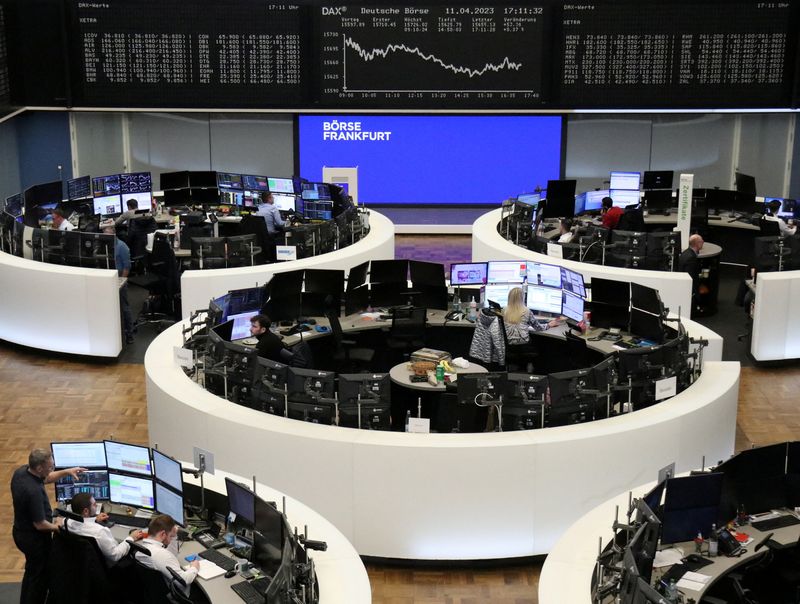A look at the day ahead in European and global markets from Tom Westbrook
The euro emerged as the clearest winner of slowing U.S. inflation and a watchful Fed. The common currency climbed 0.7% on Wednesday and was still going at $1.10 in the Asian morning.
It is up seven weeks in a row - the longest winning streak since the latter stages of 2020 when the dollar was falling and global markets were in a stimulus-soaked euphoria.
The thinking goes that inflation will keep Europe's central bankers more hawkish than their U.S. counterparts, although perhaps not by much. Europe's blue-chip stocks also hit their highest in 22 years on Wednesday.
Sterling is riding similar tailwinds. Earnings this week could test the dollar's downtrend as markets look for signals on consumer behaviour and signs of tightening credit.
A surprise leap in Chinese exports in March may well suggest a global economy that's stronger than previously thought.
British GDP and Tesco (LON:TSCO) earnings later today offer another window on that, as will European industrial output and U.S. producer price data.
In Asia on Thursday, news of SoftBank selling out of Alibaba (NYSE:BABA) weighed on Hong Kong shares, as did the cratering stock price of property developer Sunac upon its resumption of trade after more than a year-long suspension.
Australian jobs surprised to the upside, and traders largely shrugged off another North Korean missile launch.
But the minutes from last month's Fed meeting, which was held in an atmosphere of heightened fears over bank stability, suggested that policymakers' next moves will depend on credit conditions - and this will put more attention than usual on big U.S. bank earnings reports when they come out on Friday.
In a note titled "The Home Stretch", Goldman Sachs (NYSE:GS)' chief economist Jan Hatzius is sticking with an out-of-consensus call that a U.S. recession is not a foregone conclusion, noting that bank crisis risks have receded considerably in the past month.
Friday will bring some colour on the situation from Citi, Wells Fargo (NYSE:WFC) and JP Morgan Chase (NYSE:JPM), although the focus remains on regionals. Earlier in the week, shares fell at the Bank of South Carolina after it noted thin margins and "precipitous increases in our deposit costs to meet the intense competition amongst banks, brokerages, and the U.S. Treasury."
Bitcoin, meanwhile, marches on, scaling $30,000 this week for the first time since last summer.
(Graphic: Inflation - https://www.reuters.com/graphics/USA-STOCKS/zdvxdaxexvx/inflation.png)

Key developments that could influence markets on Thursday:
Tesco earnings, British Feb GDP, Eurozone industrial output, U.S. jobless claims and PPI